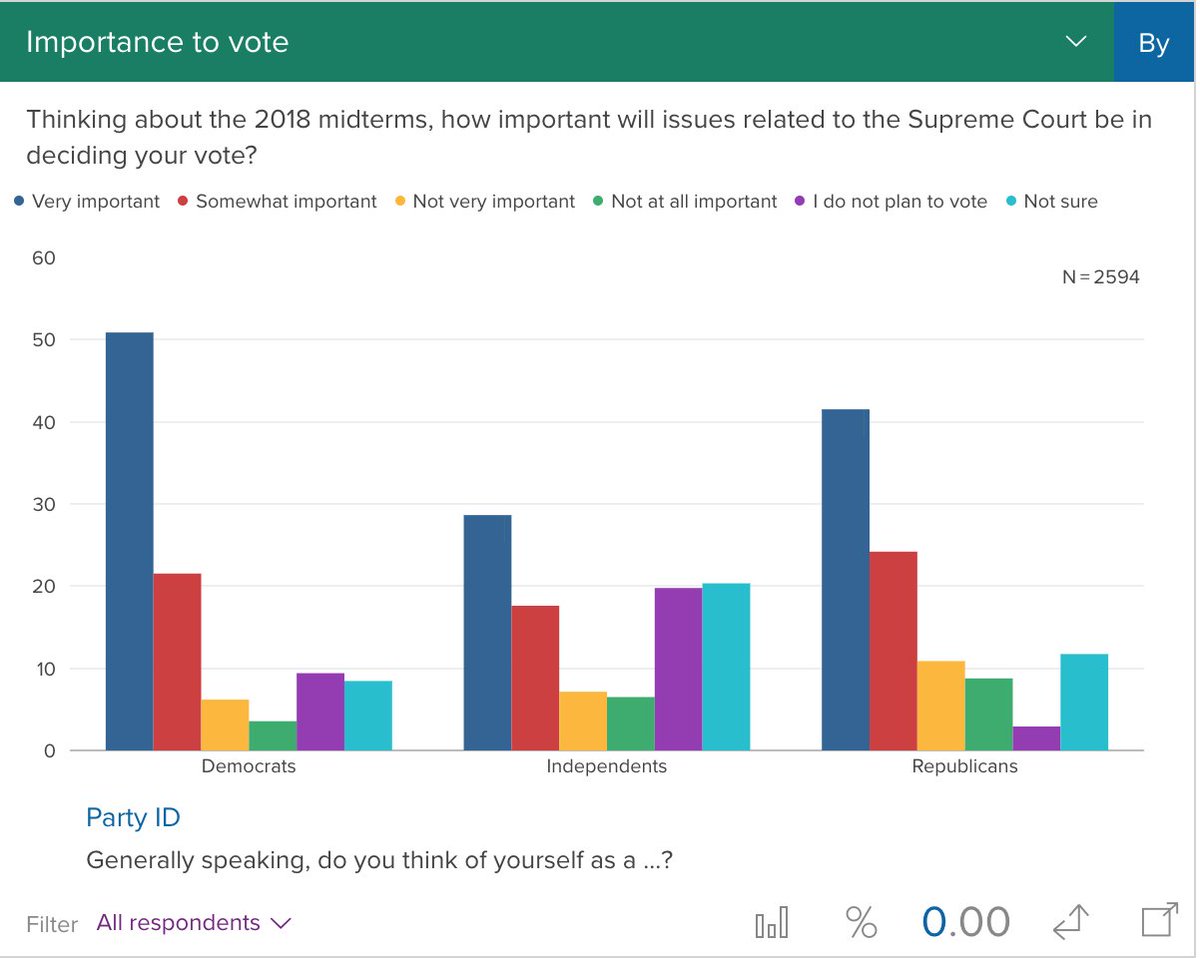
New Book, On The Edge, #5 NYT Bestseller! https://t.co/WeCLEOd4Be
3 subscribers
How to get URL link on X (Twitter) App

https://twitter.com/LPDonovan/status/1048942264544886784But people should be mindful that relatively subtle shifts in demographic coalitions can change which party benefits a lot. Obama's vote share was highly correlated with Clinton's, and yet he *over-performed* in the Electoral College while she uhhh didn't. 53eig.ht/2E0Zmj2
https://twitter.com/williamjordann/status/10465187049666355251. Overall views on confirmation aren't that much changed, but perhaps a bit worse than Kavanaugh than before (and they weren't too good before)

https://twitter.com/aedwardslevy/status/1046124898295443456

https://twitter.com/costareports/status/1041890291815538688The predicate is that time is precious for the GOP. If Kavanaugh were to withdraw *now*, they just *might* have enough time to confirm someone else before the midterm, or at least establish a foothold for the new nominee before the lame-duck session.
https://twitter.com/CasMudde/status/1038848712162926593There's also a persistent myth that nationalist parties outperform their polls. It simply isn't true, at least not over the long-run. And if anything they've underperformed their polls in recent elections. 53eig.ht/2oWnxFQ






https://twitter.com/BrendanNyhan/status/1021483228878843904Also, keep in mind that the decline in Republican ID is a *net* number not a *gross* number. Presumably some pro-Trump former independence have joined the party, which means more than 3% of the electorate has left the party.
https://twitter.com/axios/status/1019903268959420418For instance, if Trump has 40% approval, it could be because: